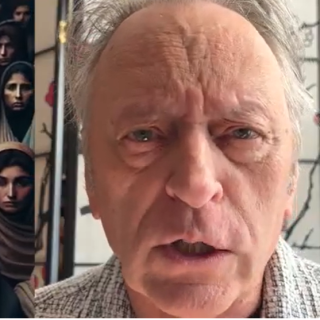Advertisement
Ohio Attorney General David Yost earlier this week rejected the Ohio Coalition to End Qualified Immunity’s (OCEQI) summary of petition yet again. This will be the fifth time the AG’s office has denied the OCEQI’s ballot language to amend the Ohio Constitution, but these activists are refusing to take ‘No’ for an answer. The OCEQI is re-starting signature gathering this weekend and their legal team has begun re-writing their amendment.
OCEQI spokesperson Cynthia Brown, who lost a nephew to Columbus police, says their financial supporters – such as the Van Jones Institute for Justice – also remain determined to have Ohioans make their own decision at the ballot box to end Qualified Immunity.
“We strongly disagree with Dave Yost,” said Brown. “We can protest in the streets all we want, but if the laws are not on our side this will continue to happen.”
Qualified Immunity is the legal loophole that makes it nearly impossible to win a civil suit against law enforcement when Constitutional rights are violated. The doctrine was established by the US Supreme Court in 1967, and most notably, has shielded law enforcement officers from being held personally liable for civil damages. Citizens have filed civil suits against officers, but when officers claim “I feared for my life” they almost never lose in a Qualified Immunity state such as Ohio.
Taxpayer money to settle police brutality lawsuits nationwide has gone past $1 billion over the previous two decades, says Brown. Ending Qualified Immunity could make police directly responsible for their own actions and they would need personal liability insurance. Thus, those officers with a history of citizen complaints could be forced out of the law enforcement if insurance companies make it too expensive for them.
The Free Press and many others agree personal liability insurance for law enforcement is a reasonable idea. When you have the power to take a life, there has to be greater accountability.
“Yost doesn’t want government officials held accountable, or jobs terminated when they clearly violate Ohioans’ civil liberties or individual rights,” said Brown.
The AG’s role in the petition process is to determine whether the language submitted is a fair and truthful summary of the proposed constitutional amendment. The OCEQI’s summary language resubmitted in May did not meet that requirement, stated the AG’s office in a press release.
“We identified omissions and misstatements that, as a whole, would mislead a potential signer as to the actual scope and effect of the proposed amendment,” stated the AG’s office.
The OCEQI originally submitted the summary under the title “Civil Action for Deprivation of Constitutional Rights” in the spring of 2021, and again in August of 2021. They then submitted it under the title “The Ohio Civil Liberties Restoration Act” in November of 2022, and under the title “Protecting Ohioans’ Constitutional Rights” earlier this year. It was again submitted under that title late last month.
If OCEQI’s summary is ever approved by AG Yost, the Ohio Ballot Board determines whether the proposal contains a single law or multiple laws. If this board certifies the petition, the OCEQI must collect signatures from at least three percent of registered voters based on the ballots cast in the last gubernatorial election.
Those signatures must come from at least 44 of the state’s 88 counties, and in each of those counties, the number must be at least 1.5 percent of the vote cast in the last gubernatorial election.
This August, however, a special statewide vote will be held for Issue 1 (even though the Republican-dominated Statehouse was pushing to end special elections). If Issue 1 passes it will require a 60 percent voter approval for any citizen-initiated constitutional amendment to pass. Meaning majority rule in Ohio would be squashed.
What is so obvious to many Ohioans is the timing of Issue 1. Citizen-led initiatives to re-legalize reproduction choice, map out fair voting districts, legalize recreational marijuana, and end Qualified Immunity have been ongoing for months, and, in some cases, years.
Activists in many states are also advocating to end Qualified Immunity, and in December, the Nevada Supreme Court ended qualified immunity in its state.
“To put this in perspective,” says Brown, “before Dec 29, 2022, in Nevada, if you had been assaulted by a police officer, your child assaulted by a teacher, or any public worker violated your rights, you most likely wouldn’t have been successful in a lawsuit. Now because of this decision you can.”



